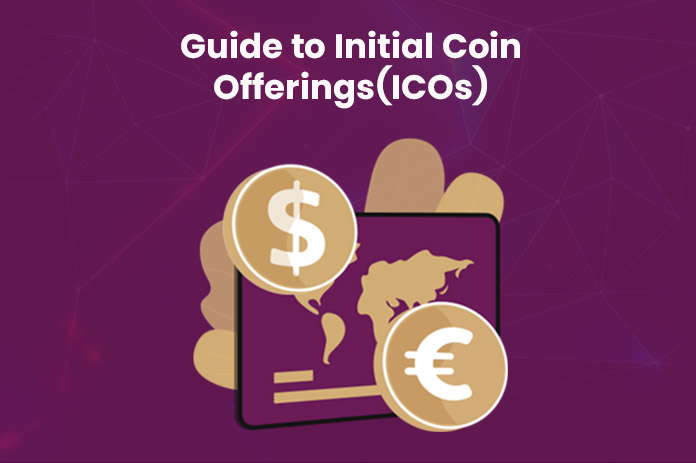In the world of blockchain and cryptocurrency, few terms are as widely recognized and yet as misunderstood as ICO, or Initial Coin Offering. If you’ve ever wondered, “What is an ICO?”, you’re not alone. This guide aims to provide a comprehensive explanation for beginners and enthusiasts looking to understand how ICOs work, why they matter, and what risks and opportunities they present.

What Is an ICO?
An Initial Coin Offering (ICO) is a fundraising mechanism that allows startups—especially those in the blockchain or cryptocurrency space—to raise capital by issuing digital tokens. These tokens are sold to investors, typically in exchange for major cryptocurrencies like Bitcoin (BTC) or Ethereum (ETH).
Unlike traditional stock offerings (IPOs), ICOs do not give investors ownership in the company. Instead, the tokens sold may have utility within a platform, serve as governance tools, or simply be held as speculative investments.
A Brief History of ICOs
The concept of ICOs became popular with the success of projects like Ethereum, which raised over $18 million in 2014. Between 2017 and 2018, ICOs exploded in popularity, raising billions of dollars. However, this boom also led to an increase in scams and failed projects, resulting in tighter scrutiny from governments and regulatory bodies around the world.
How Does an ICO Work?
The ICO process generally follows these steps:
1. Whitepaper Publication
The development team creates a detailed whitepaper that outlines the project’s goals, technological framework, tokenomics, team background, and roadmap. This document is critical for investor trust.
2. Token Creation
Tokens are created on an existing blockchain (usually Ethereum, using ERC-20 standards). These tokens will be offered during the ICO.
3. Pre-Sale and Public Sale
Some ICOs have a pre-sale round where early investors can buy tokens at a discount. After that, the public sale opens, and anyone with access to cryptocurrency can participate.
4. Token Distribution
Once the ICO ends, tokens are distributed to contributors. They may be used immediately or held for future use depending on the project’s development.
5. Exchange Listing (Optional)
If successful, the token may be listed on cryptocurrency exchanges, allowing investors to trade or sell them.
Types of ICO Tokens

- Utility Tokens: Provide access to a product or service.
- Security Tokens: Represent ownership or share of profits (often regulated).
- Governance Tokens: Allow holders to vote on platform decisions.
Benefits of ICOs
- Access to Global Capital: Anyone with an internet connection can invest.
- Lower Entry Barriers: Startups can bypass traditional funding routes.
- Community Building: Early investors become advocates and users.
- Fast Fundraising: Capital can be raised in a matter of days or weeks.
Risks of ICOs
- Lack of Regulation: Many ICOs operate in unregulated environments.
- Fraud and Scams: The 2017-2018 ICO boom saw many fraudulent projects.
- Project Failure: Many ICO-funded startups never deliver on their promises.
- Volatility: Token prices can swing wildly due to speculation and hype.
ICO vs IPO: Key Differences
| Feature | ICO | IPO |
|---|---|---|
| Offered Asset | Digital tokens | Company shares |
| Regulation | Often unregulated | Strictly regulated by authorities |
| Investor Access | Open to global public | Often restricted to accredited investors |
| Ownership Granted | No equity ownership | Shareholder rights and dividends |
How to Evaluate an ICO Before Investing

Before investing in an ICO, consider the following checklist:
- Read the Whitepaper: Does the project have a clear use case?
- Check the Team: Are the developers and advisors credible?
- Token Utility: What value does the token offer?
- Roadmap Realism: Are the development goals achievable?
- Community Activity: Look at Telegram, Twitter, Reddit.
- Regulatory Compliance: Does the project meet local legal standards?
- Smart Contract Security: Has the contract been audited?
Famous ICO Success Stories
- Ethereum (2014): Raised $18 million and became the foundation for smart contracts.
- Filecoin (2017): Raised $257 million for decentralized storage.
- EOS (2017-2018): One of the largest ICOs, raising over $4 billion.
Conclusion: Should You Invest in an ICO?
ICOs represent a powerful innovation in the way startups can raise money, but they are not without risks. For every successful project, there are dozens that fail. If you’re wondering “what is an ICO” because you’re thinking of investing, remember to conduct thorough research and understand the risks involved.
With careful planning and informed decisions, ICOs can offer exciting opportunities to be part of the next big blockchain revolution
Additionally, Hac Ecommerce offers a range of comprehensive services designed to support and empower businesses operating in the POD (Print on Demand) industry. These services include fulfillment solutions, payment account rentals, and design cloning, all of which are tailored to meet the unique needs of entrepreneurs in this niche.


